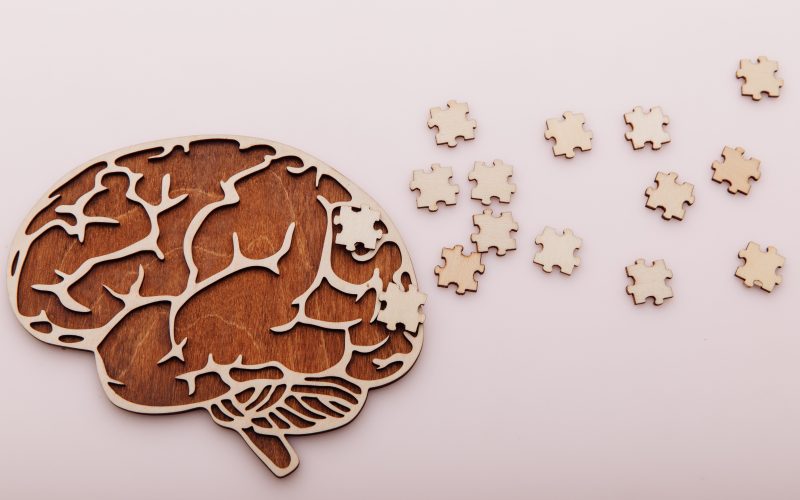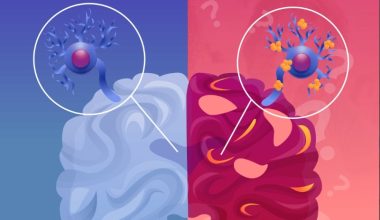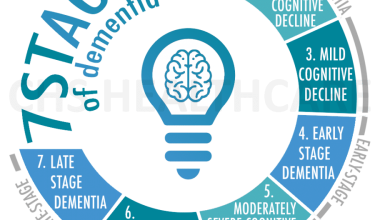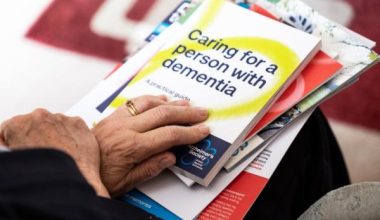As an Amazon Associate, I earn from qualifying purchases
The seven stages of Alzheimer’s disease include no impairment, very mild decline, mild decline, moderate decline, moderately severe decline, severe decline, and very severe decline. These stages progress from no symptoms to profound cognitive impairment.
Alzheimer’s disease is a progressive neurological disorder that gradually diminishes an individual’s memory and cognitive skills. Understanding the stages of Alzheimer’s helps families prepare for the challenges ahead and allows healthcare professionals to tailor interventions effectively. Early diagnosis can lead to better management of symptoms and improved quality of life for those affected.
The stages, developed by the Alzheimer’s Association, serve as a framework for clinicians to categorize the progression and plan appropriate care strategies. Knowledge of these stages enables individuals to recognize the signs early on and seek professional help, thus potentially slowing the disease’s progression through medical treatments and lifestyle adjustments.
The Onset Of Alzheimer’s Disease
Alzheimer’s Disease marks the beginning of a challenging journey. It creeps in silently, often unnoticed until its impact becomes clear. It is a progressive disease that impairs memory and other mental functions. Let’s explore the initial stage when signs first appear.
Recognizing Early Symptoms
Early detection of Alzheimer’s can significantly help manage the disease. Here are key symptoms to watch for:
- Memory lapses, such as forgetting recent events or conversations.
- Challenges in problem-solving or planning daily tasks.
- Familiar tasks become complex, like managing bills or following a recipe.
- Confusion with time or places.
- New problems with words in speaking or writing.
- Mood and personality changes, like becoming withdrawn or irritable.
Factors Leading To Diagnosis
Arriving at an Alzheimer’s diagnosis involves a mix of factors. Doctors will look at:
| Medical History | Cognitive Tests | Neurological Function |
|---|---|---|
| Review past health issues and family history of dementia. | Evaluate memory, problem solving, attention, counting, and language. | Check reflexes, muscle tone, sense of touch and sight, and coordination. |
Brain imaging, like MRI or CT scans, might also be used. These images can show changes in the brain’s structure.

Credit: www.leisurecare.com
Stage 1: No Impairment
Alzheimer’s disease is a formidable challenge many face as they age.
In its earliest phase, Stage 1, individuals exhibit no noticeable symptoms.
This stage is critical for understanding the progression of Alzheimer’s.
Absence Of Symptoms
At this initial phase, Alzheimer’s disease is virtually undetectable.
Those affected function normally with no memory loss or behavioral changes.
Daily life remains unaffected, and mental abilities are intact.
Diagnostically, Alzheimer’s is not evident in Stage 1.
Screening And Preventative Measures
Early detection plays a crucial role. Routine screenings are valuable even without symptoms.
Medical professionals may employ cognitive assessments or genetic testing.
Such screenings can identify risks before symptoms arise.
- Regular health check-ups
- Cognitively stimulating activities
- Healthy diet and exercise
- Screening for cardiovascular risk factors
Implementing preventive measures is essential. Maintaining a healthy lifestyle may reduce risk.
Steps include engaging in physical and mental activities, sustaining a balanced diet, and managing stress.
Stage 2: Very Mild Decline
At this stage in Alzheimer’s disease, changes are subtle.
Some memory lapses occur, but daily activities are not affected much.
It can be hard to tell if these changes are due to aging or the start of Alzheimer’s.
Subtle Memory Lapses
Memory lapses in this stage are often so mild they can be missed.
They may include forgetting words or where everyday items are placed.
Recognizing these signs is important for early intervention.
- Forgetting familiar words or locations
- Misplacing everyday items like keys or glasses
- Momentary forgetfulness of what day it is
Communicating With Loved Ones
Talking with those experiencing Alzheimer’s needs sensitivity.
Patience is key.
Loved ones might not realize memory lapses are happening.
- Listen carefully and offer gentle reminders
- Keep communication simple and direct
- Support them with understanding, avoiding confrontation
Stage 3: Mild Decline
Stage 3 of Alzheimer’s, also known as Mild Decline, becomes apparent to friends and family of the individual. Subtle changes in memory and cognitive functions start to interfere with daily activities. Recognizing these signs is crucial for early intervention and planning.
Noticeable Memory Difficulties
During this stage, memory difficulties become more pronounced. Signs to look out for include:
- Losing valuable objects
- Difficulty in remembering names or words
- Challenges in planning or organizing
While forgetting names or misplacing keys is common, these occurrences increase in frequency at this stage.
Impact On Work And Social Activities
The mild cognitive decline can visibly affect both work performance and social engagements. Key impacts include:
| Work | Social Activities |
|---|---|
| Missed deadlines | Withdrawal from hobbies |
| Error in tasks | Less involvement in social gatherings |
| Difficulty with complex tasks | Unease in group conversations |
Such challenges may begin to become noticeable to coworkers and friends, signaling a need for medical advice and support.
Stage 4: Moderate Decline
Stage 4: Moderate Decline marks a pivotal shift in the progression of Alzheimer’s. Individuals experience tangible disruptions in their ability to manage everyday activities. Recognizing the symptoms and adapting care strategies becomes crucial for maintaining quality of life during this stage.
Challenges In Daily Tasks
As Alzheimer’s reaches the fourth stage, previously simple tasks become obstacles:
- Memory lapses grow more apparent, particularly of recent events or conversations.
- Managing finances turns into a complex hurdle, often resulting in errors.
- Difficulty with travel outside familiar environments often leads to disorientation.
- Complex tasks, such as planning dinner or organizing a grocery list, often feel overwhelming.
Family and caregivers need to provide a supportive framework to navigate these challenges.
When To Seek Increased Care
Certain signs highlight the need to enhance care arrangements:
| Sign | Action |
|---|---|
| Struggles with dressing appropriately | Introduce simple clothing choices or assist with dressing. |
| Withdrawal from social interactions | Encourage engagement with family and support groups. |
| Increased mood swings or confusion | Consult a healthcare professional for potential therapy or medication adjustments. |
| Resistance to personal care | Seek professional in-home care services to assist with daily routines. |
Timely actions can greatly alleviate the stress felt by both the individual and their caregivers during this moderate decline.

Credit: www.seniorlivingselections.com
Stage 5: Moderately Severe Decline
As we delve deeper into the journey through Alzheimer’s, we reach Stage 5: Moderately Severe Decline. Here, individuals experience noticeable gaps in memory and cognitive abilities. They often require help with day-to-day activities.
Significant Assistance Required
During this stage, the need for support becomes more evident. Daily tasks such as dressing, grooming, and even choosing appropriate clothing for the weather become challenging. Loved ones or caregivers play a crucial role in helping maintain routines.
- Assistance with personal care is imperative to ensure health and hygiene.
- Safety becomes a priority, with measures taken to prevent accidents.
- Structured environments help minimize confusion and agitation.
Preserving Dignity And Independence
Despite the challenges, it’s vital to respect the person’s autonomy and self-respect. Strategies include:
- Simple choices, such as between two outfits, give a sense of control.
- Engaging in familiar tasks provides comfort and a sense of accomplishment.
- Positive reinforcement acknowledges capabilities rather than limitations.
Adapting the living environment and routines to the individual’s abilities becomes essential in supporting ongoing independence and dignity.
Stage 6: Severe Decline
Stage 6: Severe Decline marks a profound shift in Alzheimer’s disease. People at this stage require constant supervision. Daily tasks become impossible without help. Communication dwindles. Recognition of close family might fade. As challenging as this stage is, understanding and preparation can help manage its complexities.
Intensive Care Needs
The need for intensive care escalates during Stage 6. Persons affected may:
- Lose awareness of their environment.
- Experience changes in sleep patterns.
- Need help with personal care.
Adapting to these needs requires patience and mindfulness. Caregivers may need to consider:
| Requirement | Action |
|---|---|
| Feeding | Assist with meals, monitor nutrition. |
| Mobility | Support with walking, prevent falls. |
| Hygiene | Help with bathing, dressing, dental care. |
Managing Behavioral Changes
Behavioral changes become more evident. The affected may:
- Show aggression or anger.
- Become anxious or restless.
- Exhibit repetitive behavior.
Techniques for caregivers to manage these behaviors include:
- Creating calm surroundings: Reduce noise and clutter.
- Establishing routines: Predictability can provide comfort.
- Redirecting focus: Gently shift attention to prevent frustration.
Every response must be with compassion. Stay calm. Seek help from professionals.
Stage 7: Very Severe Decline
Stage 7: Very Severe Decline marks the final phase in the journey of Alzheimer’s. At this juncture, the individual may lose their ability to communicate or respond to their environment. Alzheimer’s has now profoundly affected the brain, where even basic bodily functions could be compromised. This stage demands constant care, and understanding the needs becomes crucial for caregivers.
End-of-life Care Considerations
As Alzheimer’s reaches this advanced stage, end-of-life care becomes a primary focus. Reflecting on care preferences and quality of life is essential. Decisions could include:
- Hospice care options, supporting comfort
- Pain management strategies to ease suffering
- Assessment of nourishment methods
- Care that upholds dignity and respect
Addressing spiritual, cultural, or personal wishes aligns care with the patient’s values. This approach eases their transition and supports loved ones.
Support For Families And Caregivers
Families and caregivers shoulder a heavy emotional load during Stage 7. Offering support includes:
- Connecting with Alzheimer’s support groups
- Utilizing respite care services to prevent burnout
- Educating on grief and loss to aid coping
Encouraging family members to seek individual therapy can provide a safe space to process emotions. Compassionate care extends to everyone touched by Alzheimer’s in this stage.
Navigating The Journey
Navigating the Journey through Alzheimer’s entails understanding its intricacies and preparing oneself for the changes ahead. The challenge is tremendous but manageable with the right strategies and support. Caregivers embark on this path with their loved ones, facing hurdles unique to each stage of Alzheimer’s. Success lies in taking proactive steps, adapting to evolving needs, and finding solace in shared experiences.
Coping Strategies For Caregivers
Caring for a loved one with Alzheimer’s demands resilience and patience. Key strategies include:
- Educate Yourself: Understand the disease to better manage care.
- Establish Routines: Stick to a schedule to provide stability.
- Self-Care: Take breaks to recharge and avoid burnout.
- Home Safety: Modify the environment to prevent accidents.
- Communication Techniques: Learn effective ways to connect.
- Legal Planning: Arrange legal affairs early to avoid complications.
Seeking Professional Help And Support Groups
As the disease progresses, professional guidance becomes indispensable:
- Medical Teams: Regular check-ins with doctors ensure optimal care.
- Therapeutic Services: Speech and occupational therapy may be beneficial.
- Respite Care: Temporary care gives caregivers a necessary break.
- Support Groups: Connect with others for shared understanding and tips.
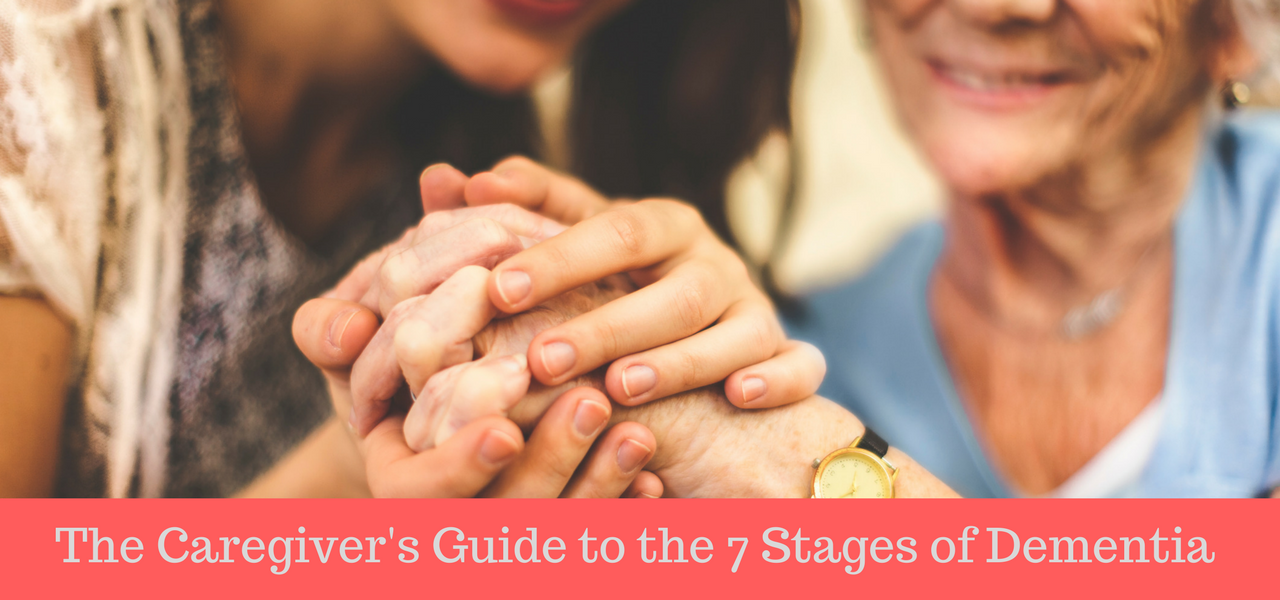
Credit: www.leisurecare.com
Frequently Asked Questions For 7 Stages Of Alzheimer’s
How Long Do The 7 Stages Of Alzheimer’s Last?
The duration of the 7 stages of Alzheimer’s varies, typically spanning from 2 to 20 years, with an average of 8 to 10 years. Each stage can last from several months to several years, depending on the individual.
What Is The Average Age Of Death From Alzheimer’s?
The average age of death for those with Alzheimer’s is approximately 84 years. However, this can vary based on individual health factors and the age of onset.
What Is The Timeline For Alzheimer’s To Death?
The timeline from Alzheimer’s diagnosis to death typically ranges from 4 to 8 years, but can extend up to 20 years, depending on individual factors and health support.
At What Stage Do Dementia Patients Forget Family Members?
Dementia patients often begin to forget family members during the middle or late stages of the disease, known as moderate or severe dementia.
Conclusion
Understanding the stages of Alzheimer’s is crucial for caregiving and treatment. Early diagnosis can improve quality of life. By recognizing the signs at each phase, effective support plans are possible. Remember, you’re not alone in this journey—resources and communities are ready to help.
Embrace the support, and knowledge is your ally.
As an Amazon Associate, I earn from qualifying purchases
